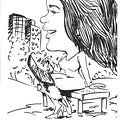Member-only story
What’s At Stake
The Political Power of Asian American Voters In 2020
As the voting bloc grows, so does their ability to swing votes in their favor
Data shows that in 2018, turnout among women of color increased 37% from the 2014 midterms. That ushered in such diverse lawmakers as Rashida Tlaib of Michigan, the first woman of Palestinian descent in Congress, Rep. Ilhan Omar of Minnesota, who is Muslim, and Sharice Davids and Deb Haaland, the first Native American women in Congress. The numbers of African American, Latino, and Asian American women have also increased on Capitol Hill.
In the upcoming election cycle, besides the commander in chief, women of color votes could flip the Senate, yield another sweep of House Congressional races, as well as state, local, and down-ballot matches.ZORA has delved into what’s at stake in this election cycle with an important series. We sought the insight of political activists, advocacy groups, lawmakers, and community stakeholders.
Read on for insight into a voting bloc that may not only impact the next election, but America’s future course. Keep an eye on What’s at Stake all week long.
Daughter of a Vietnamese mother and an American serviceman with German roots, Madalene Xuan-Trang Mielke and her family…

